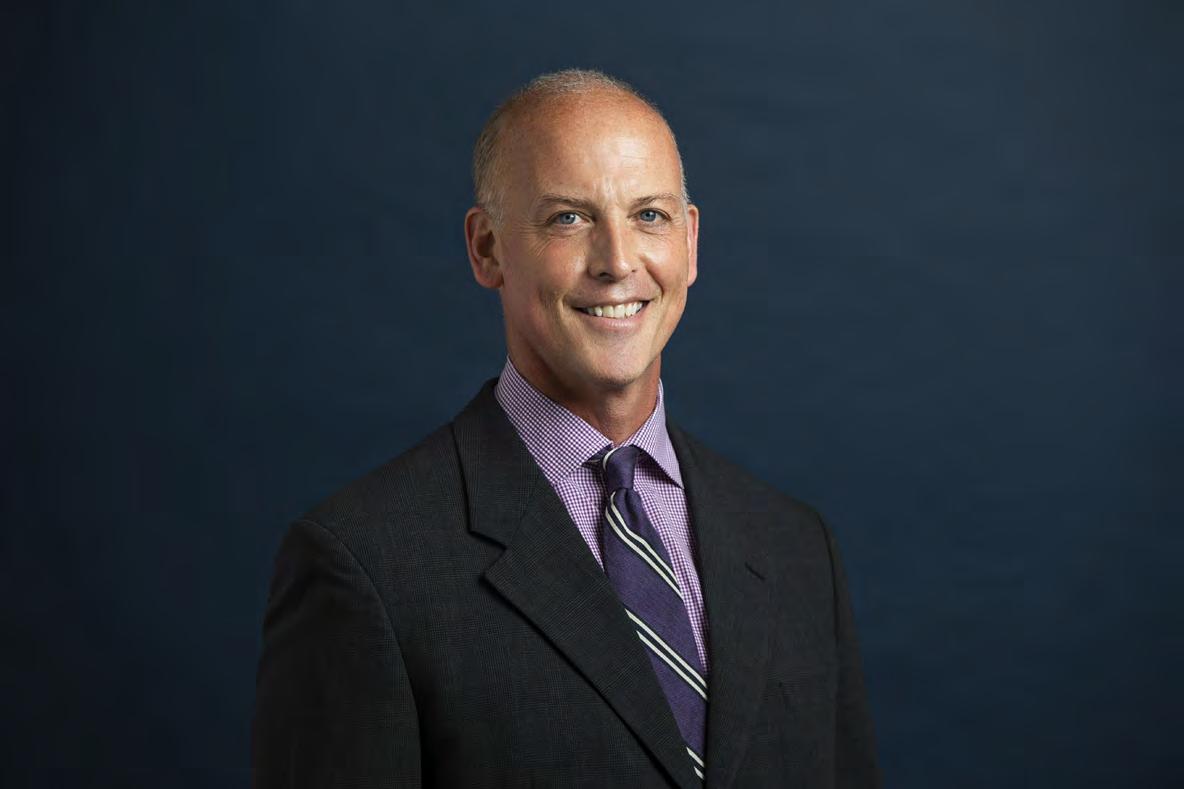INTERVIEW
Changing the Future of Health Care Kevin J. Mullaney, MD
This month you graduate your 50th class
of employment or responsibilities requiring the use of their hands. We realize our reputation is a key part of our identity, and this, thankfully, has allowed us to maintain a strong pipeline of outstanding applicants from all areas of our country and beyond our borders.
from your fellowship program. Please tell us something about the first class.
Over the years, how has the program both changed and remained the same?
The program has grown in a number of ways. As our practice grew, we were able to expand the number of yearly fellows we desired to accept and train. We typically have four fellows a year now, who rotate among the 10 Board Certified and Fellowship Trained surgeons that make up Twin Cities Spine Center. The emphasis of the training has also grown— from primarily scoliosis and spinal deformity care to all conditions of the spine, including degenerative, traumatic and tumors. Perhaps the most dramatic change to our program was the addition of cervical pathologies, which now make up roughly 30-40% of our patients. What has remained constant in our program and our practice is our commitment to excellence, leadership, education, research and outstanding patient care. What can you tell us about the kind of person that is drawn to your program?
Our fellowship program attracts orthopaedic and neurosurgical trained surgeons interested in
8
JULY 2022 MINNESOTA PHYSICIAN
Looking at the last 50 years, what have been some of biggest advances in your specialty?
“...”has remained What constant… is our commitment to excellence, leadership, education, research and outstanding patient care. “...”
The John H. Moe Spine Fellowship program is named for our founder and a true pioneer of spine care, Dr. John Moe. Over the past 50 years, the program has trained 189 spine surgeons from 16 countries. Our first John Moe Fellowship class started in 1971, and it focused primarily on the care and treatment of scoliosis. There were two fellows in that initial group that graduated in 1972: Dr. Claudio Pedras, from Brazil, and Dr. Edgar Dawson, who later became chief of staff at both UCLA and Shriner’s Hospital in Los Angeles. Dr. Dawson also served in 1995 as the President of the Scoliosis Research Society (SRS), which Dr. Moe had helped to establish and served as its first president in 1966.
subspecializing in spine and seeking a training program that will provide a large and diverse number of spine patients. Twin Cities Spine is known for seeing some of the most complicated spine cases, as well as doing what would be considered more routine spine care and surgery of the lumbar, thoracic and cervical spine. Our teaching surgeons use a wide variety of surgical approaches, from traditional open surgery to minimally invasive techniques and robotic assisted procedures. Applicants choose our program because it is comprehensive in the sense that we emphasize conservative care, taught by a balance of clinical assessments, research and surgical exposure. Because our fellowship includes a research component, we also attract applicants with an interest in research and academics. We seek applicants who are ethical, moral and come with a strong training foundation. We look for self-motivated individuals with early positions
Over the past 50 years, we have seen a significant number of advances in regard to techniques applicable to spinal pathology. This ranges from minimally invasive techniques to roboticassisted procedures and high-tech CT-guided instrumentation, placement and confirmation. We have been able to care for patients with more spinal pathologies with less morbidity. There have also been significant advances in perioperative pain management, which often allows us to perform surgeries with a shortened length of hospital stay or same-day discharges. Patients are able to return back home sooner to familiar surroundings and comfort. Imaging of spinal pathology has also been greatly enhanced with the onset of 3D images, robotic reconstruction, high-grade MRI and CT. What kinds of research/clinical trials is your practice working on?
We study surgical and non-surgical treatments for adult neck and low back disorders and adolescent idiopathic scoliosis. We also investigate related topics like the effectiveness of osteobiological agents for bone healing and the prevention of postoperative surgical site infections. And we seek to evaluate new and developing technologies such as minimally invasive techniques and robotassisted spine surgery. The fellows in our program are required to take on at least one research project during their year with us. They have the support (and extensive data) of the Twin Cities Spine Research Department as they set out to



